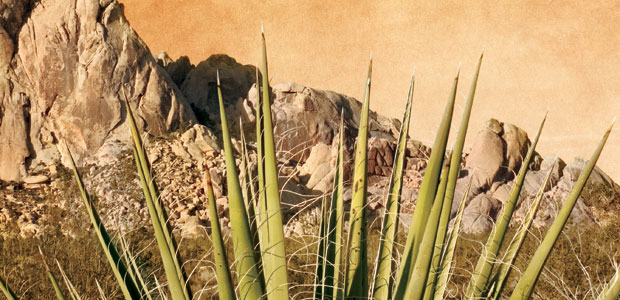Advertisement
Yucca
Spikes a healthy interest

Did you know that a substance found in fresh flowers from the yucca plant combats some strains of melanoma in test tube studies and in mice? Although the effectiveness of yucca with human melanoma has yet to be proven, this often overlooked ornamental shrub is medicinally useful in a number of ways.
Plants of the genus Yucca are native to the Mojave Desert in the American Southwest. Also known as soap tree or soap root, yuccas were helpful to early settlers who learned from the First Nations people of the region that the steroidal saponins in yucca root (not to be confused with cassava, or yuca root) make an effective foaming shampoo or soap.
These same steroidal saponins are the main medicinal ingredients in the yucca plant, acting as anti-inflammatory agents and blocking the release of toxins from the intestines that impair cartilage function. Herbalists therefore frequently prescribe yucca as a remedy for both rheumatoid and osteoarthritis in formulas that combine yucca root with devil’s claw, black cohosh root, prickly ash bark, ginger root, and licorice root. These anti-inflammatory qualities also alleviate gout and urethral and prostate inflammation.
Yucca is also used medicinally as a cardiac stimulator, diuretic, blood purifier, and cholagogue (promoting the flow of bile into the intestine as a result of contraction of the gallbladder).
The steroidal saponins in yucca do not enter the bloodstream, but act on the intestinal flora to regulate the balance of the bacterial and yeast colonies in the colon. By stimulating friendly flora and inhibiting others, yucca saponins may indirectly promote the absorption of other nutrients and reduce toxins.
However, excessive consumption of yucca is believed to reduce the absorption of fat-soluble vitamins and can result in some intestinal cramping and diarrhea. The addition of ginger to the formula will lessen this effect. If taken alone, limit the dosage for yucca root to about 14 g daily.
Yucca is an ornamental plant with many healing properties that we are only beginning to discover.
Yucca Soap
Boil 1/2 to 1 cup (125 to 250 mL) chopped fresh or dried root in 1 1/2 cups (375 mL) water until suds form. Lather and rinse.
Yucca Magic
According to Scott Cunningham in his book, Encyclopedia of Magical Herbs (Llewellyn, 2000), a cross of yucca fibres twisted together and placed on the hearth will protect the house from evil. First Nations of the American Southwest, for whom the yucca is a highly functional plant, have their own magical legends. A small wreath of yucca fibres on a person’s head will enable the wearer to assume any form desired. Jumping through a hoop of yucca fibres will transform the person into an animal.




